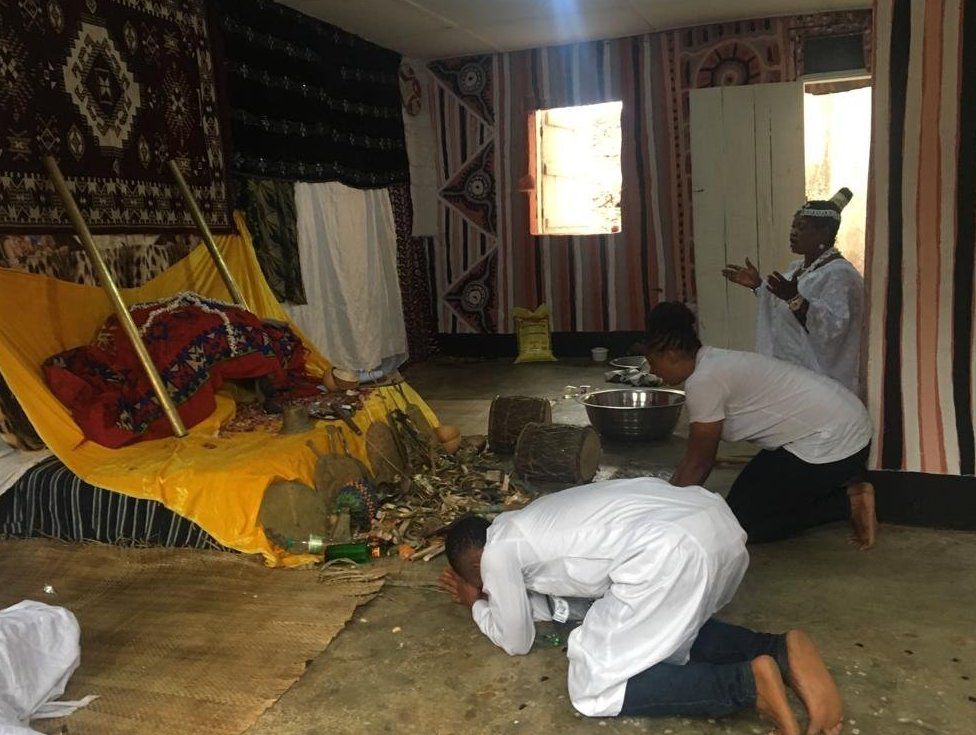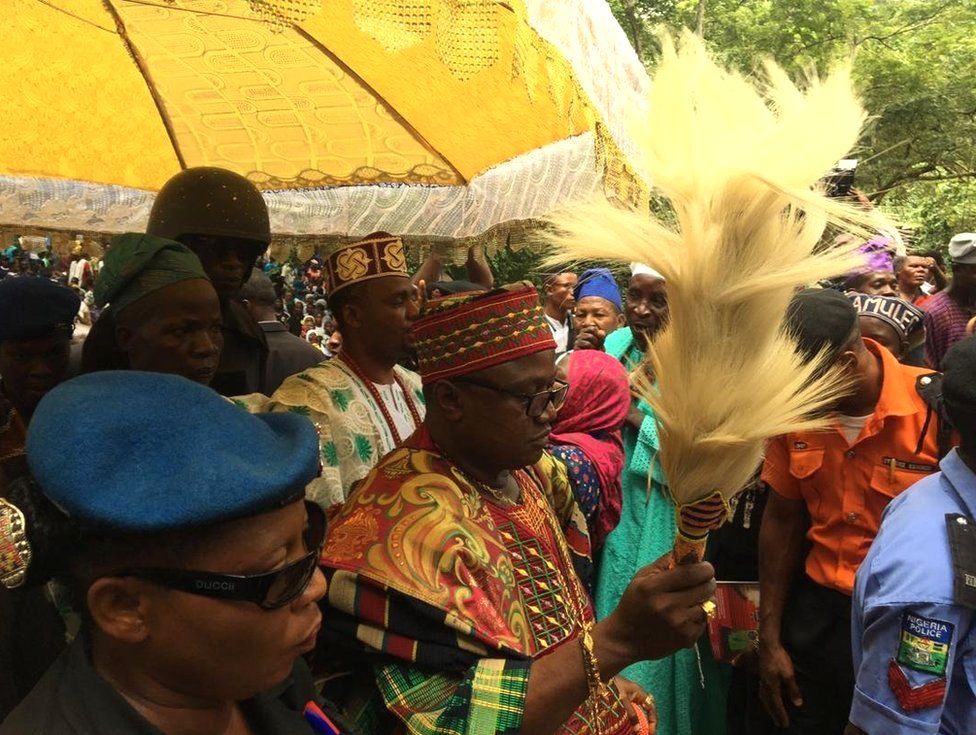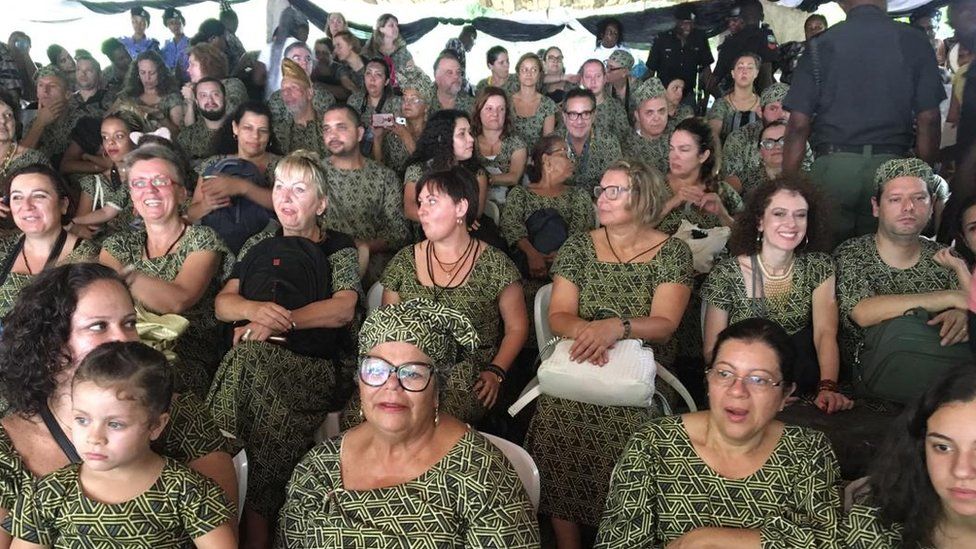The West African nation of Nigeria is characterized by a wide range of cultures. Varied across five hundred and more ethnic groups, Nigerian tribes celebrate festivals which is a representation of their rich history.
There are many festivals in Nigeria, some of which date back to the period before the arrival of the major religions. Annually, the country celebrates 17 cultural festivals, most of which are marked in ways that are unique to the various ethnic groups.
One of the oldest is the Osun Osogbo festival, a traditional celebration that is believed to be 600 years old. Celebrated for two weeks, this festival attracts a unique blend of traditional Yoruba worshippers and spectators from Nigeria and around the globe.
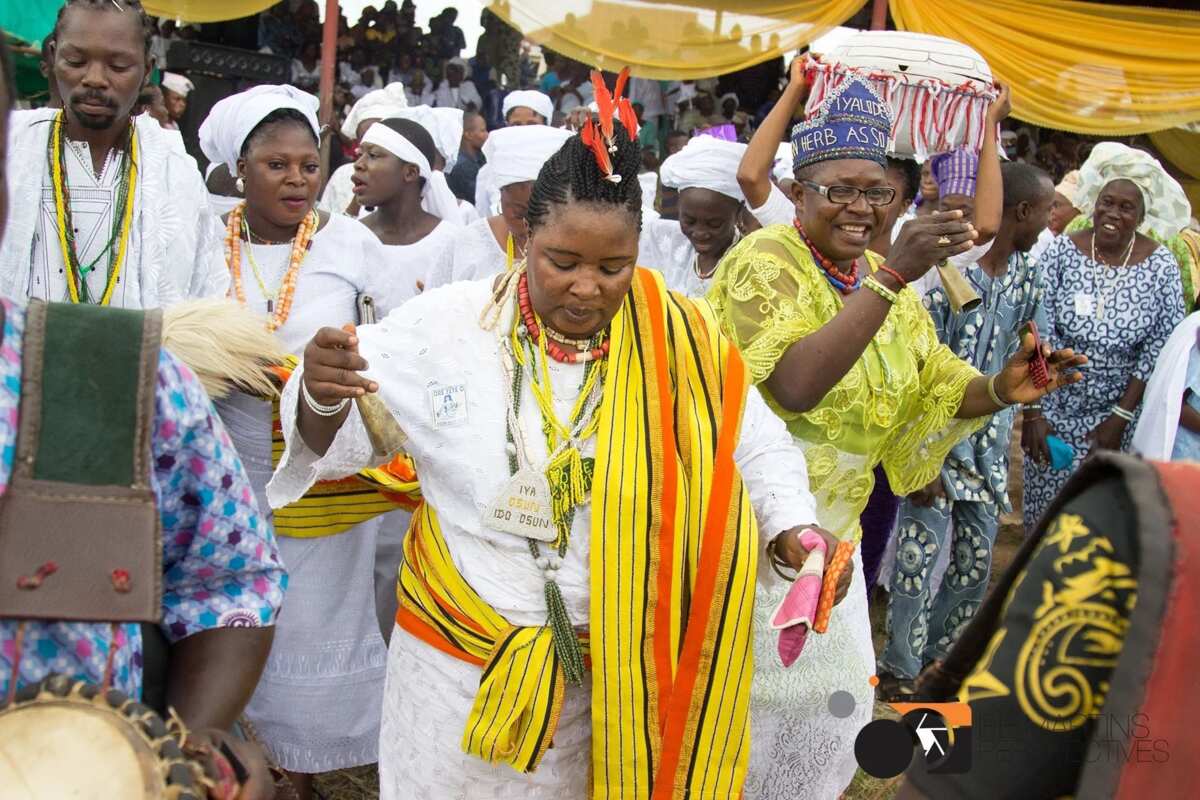
The event, which is gradually coming to a close, is the biggest annual traditional religious festival of the Yoruba people. According to Sunday Punch, a U.S based tourist, Jackie Lage, identified the “good energy and spirituality involved in the festival” as what would make her return for the event next year.

Some experts in traditional religion say the festival was birthed as a result of the failed attempt by the founders of Osun Osogbo to build their house along the river bank. Their failure was hindered by the river-god Osun, who called them out as they began felling trees. The site was recognized by UNESCO as a World Heritage Site in 2003.
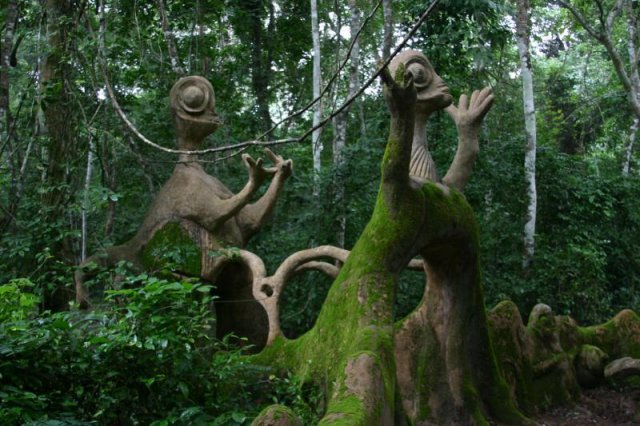
It is believed that the sacred grove forest situated on the outskirts of the city of Osogbo is one of the last remaining places the spirts or “Orishas” reveal themselves to bless people. This prompts devotees to sing, dance and play the drums to appease the goddess of fertility.
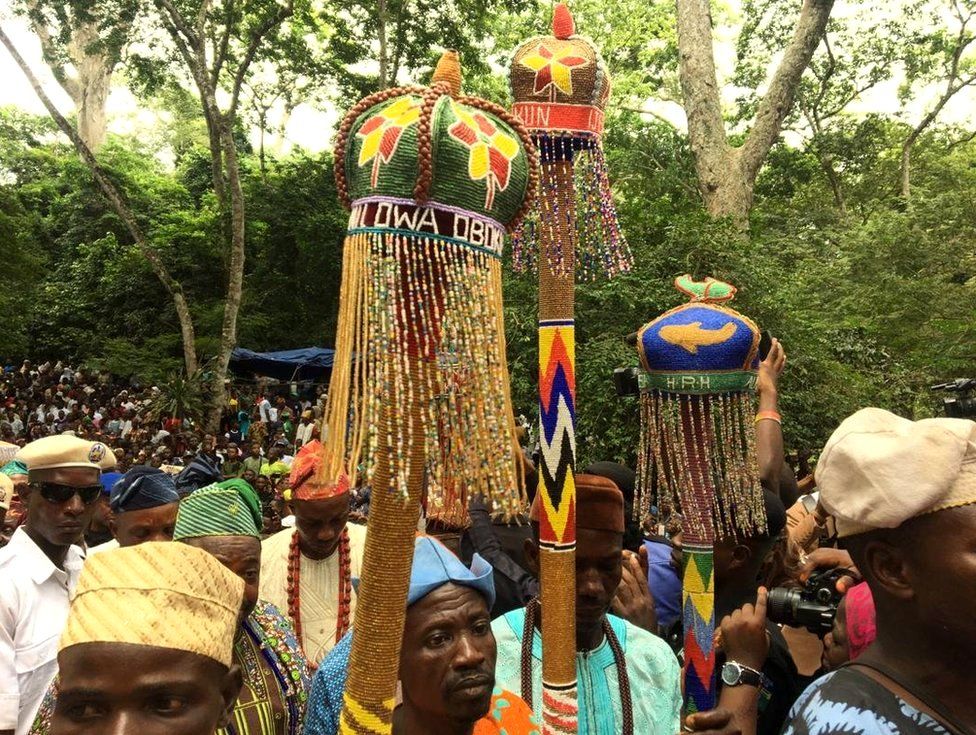
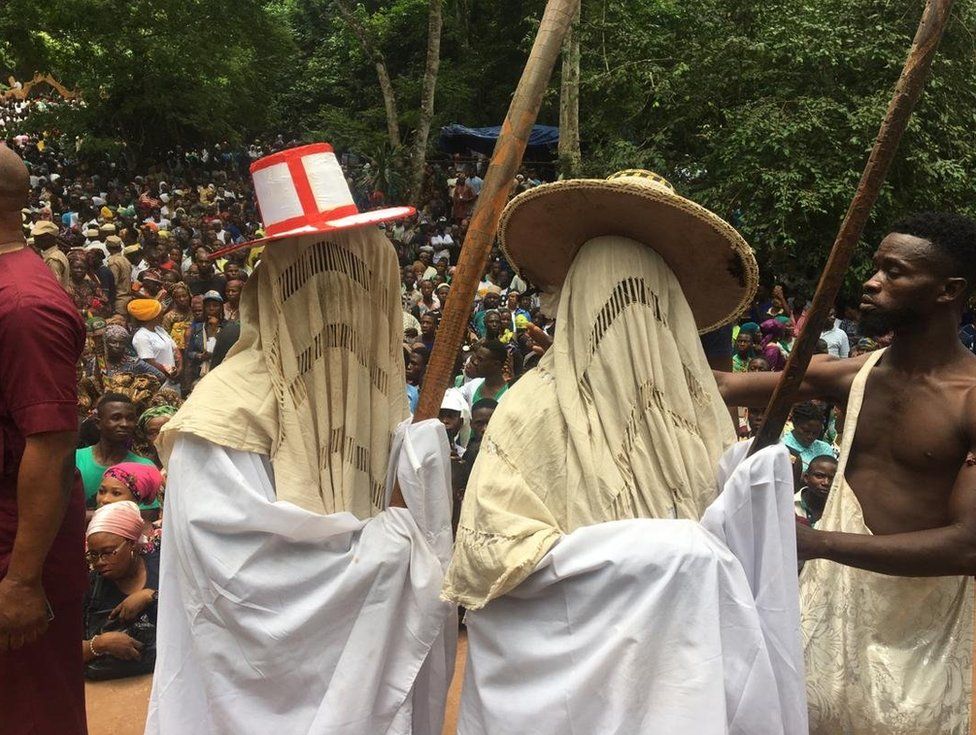
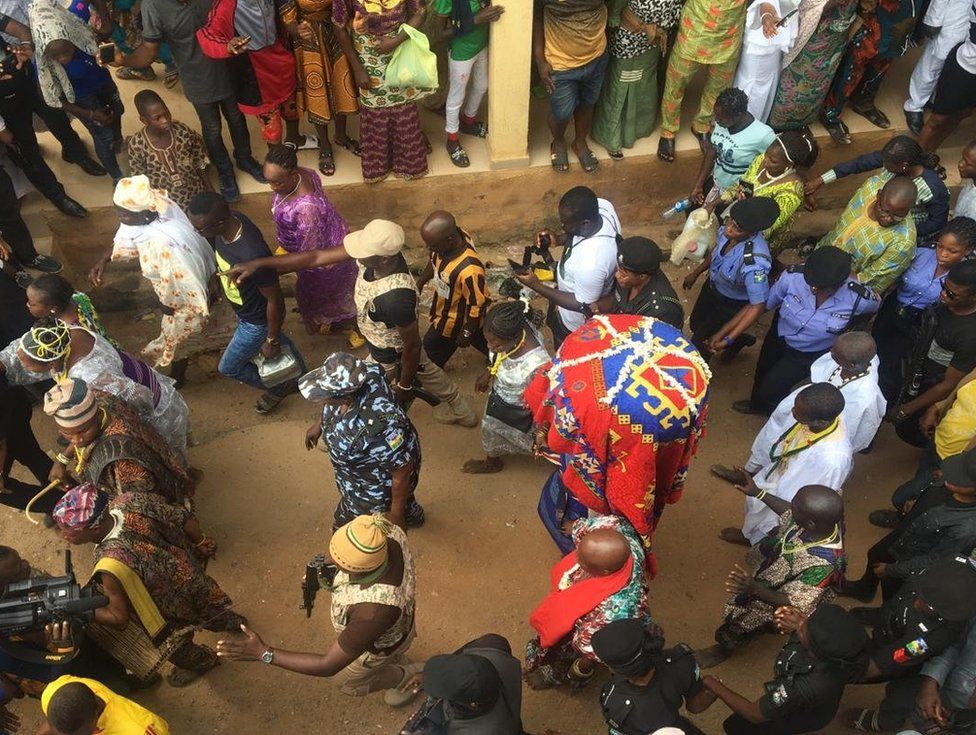
The Yoruba and Ifa of Nigeria have a number of deities in their traditional religion. These deities include Osun, who presides over love, intimacy, beauty, wealth and diplomacy.
The virgin Arugba is the patron saint of the Osun River that was named after her. Her worshippers converge at the Osun-Osogbo grove where her principal sanctuary is located and where an eponymous festival is held every August. She is the liaison between the people and the deity who leads devotees intending to offer sacrifices to the river.
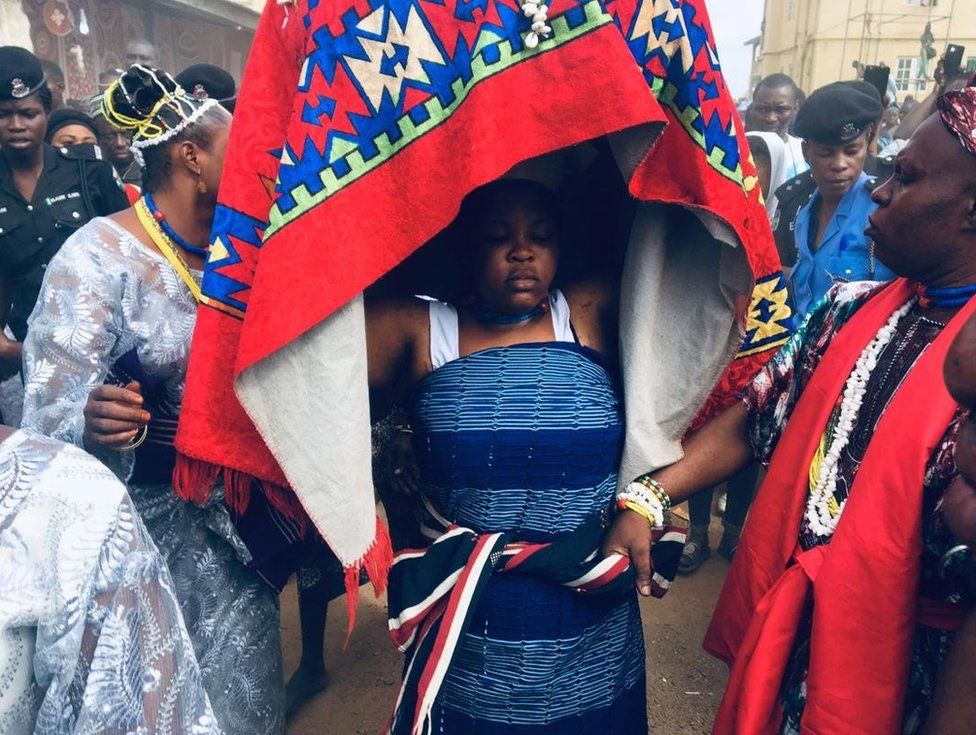
Known as the ‘calabash carrier’, Arugba carries a large calabash on her head which contains the sacrifice of the entire community as well as those who attend the festival. Due to the sensitive nature of this role, every Arugba has to remain a virgin before and during her time in the role.
Just before all the worshippers move to the river for the processions, some of them offer a significant amount of prayers at the priestess’ shrine.
